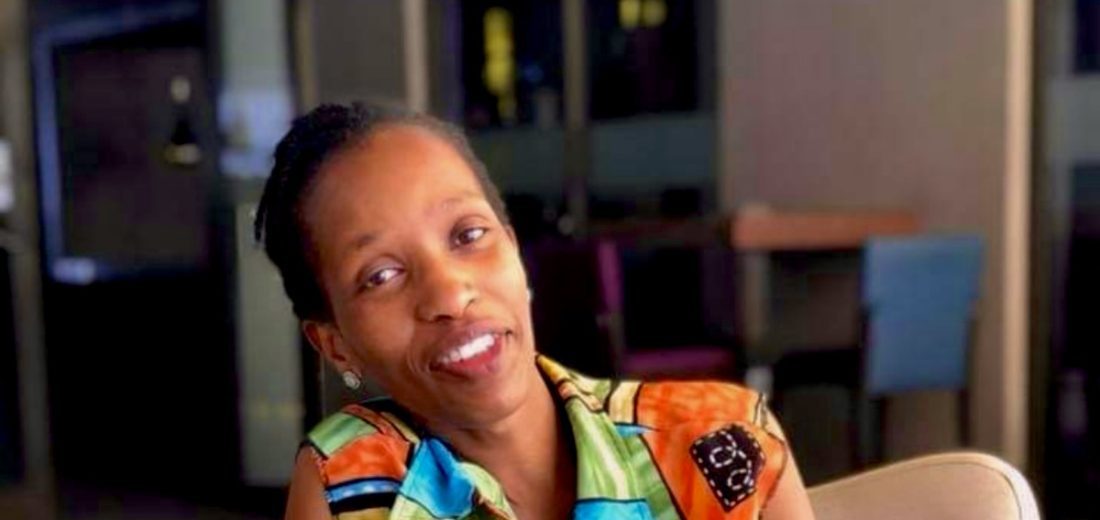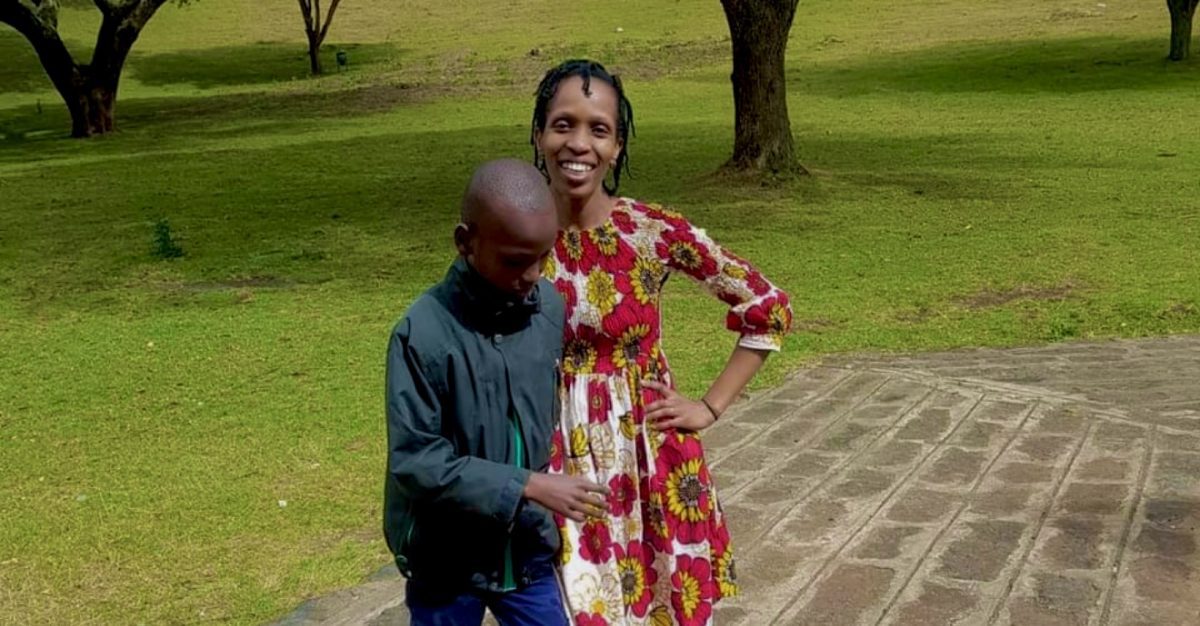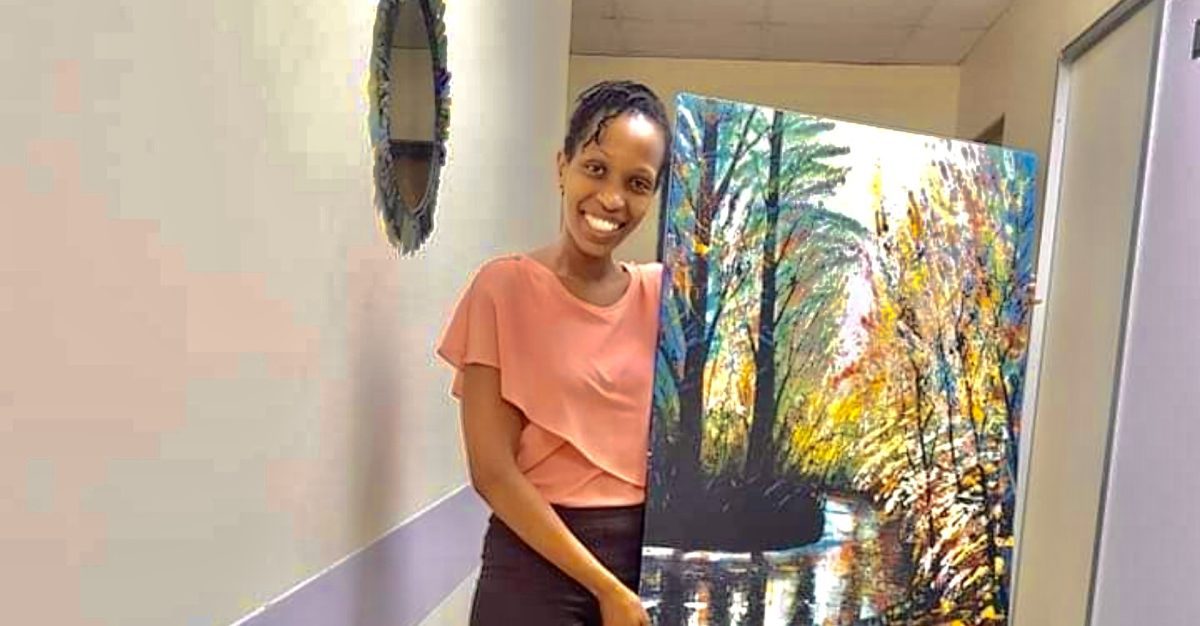
Even though autism has been around for a long time, it has become increasingly frequent in our society in recent years. This is due to improved diagnostic tools and more awareness as compared to before. Although it is a lifelong disorder, early diagnosis should be made to allow for early intervention. Hilda Ng’ang’a, a mother of two, shares her experience with her 10-year-old son who was diagnosed when he was just five years old.
‘It doesn’t have to be International Autism Day to create awareness and the need for inclusion of the people living with autism. As a parent to an autistic child, every day is an awareness day for me,’ Hilda Ng’ang’a begins as she chops carrots in her kitchen at her home located on the outskirts of Nairobi. ‘My son loves it here.’ The quiet and serene environment, surrounded by greenery, is a deliberate choice for her 10-year-old son to live and comfortably thrive in. She informs me that the environment plays a significant role in the coping mechanism and behavioral episodes of an autistic person.
Ever since her son was diagnosed with autism, Hilda always purposed to share her son’s story as a means to create awareness. Most importantly, she wants to nurture a culture of acceptance and inclusion of this often overlooked disorder.
What is Autism Spectrum Disorder?
Autism spectrum disorder refers to a broad range of conditions characterized by challenges with social skills, repetitive behaviors, speech, and nonverbal communication. Early diagnosis and intervention is essential as this can make a significant difference in improving the quality of life of a child with autism.
Hilda noticed that her son’s behavior was unusual even before he was diagnosed with the disorder. Being in the medical industry helped her spot some developmental challenges in him, though her motherly instincts also constantly told her that he was developing differently. She describes him as being socially disengaged from her as a child. As he grew older, he always kept to himself and never wanted to be around his peers.
The diagnosis was not simple as the first diagnosis they received was not conclusive. The doctor assured them that their son had global developmental delays, a condition in which a child takes longer to complete certain milestones, compared to other children their age. Because he was their first child, it was assumed that it was not unusual for him to have developmental delays, as many firstborns especially boys “often” do. She was encouraged to seek occupational therapy; treatment used to enhance motor skills, balance, and coordination in children and adults who struggle with everyday tasks like writing or getting dressed, and speech therapy. It was assumed that things would improve over time, but nothing much changed.

‘I already knew what my son had, but I needed a medical diagnosis to ascertain my prognosis,’ she says. It is a normal concern for any parent to worry when their child has not achieved any developmental milestone. At the age of three, he still couldn’t speak, and Hilda was now very conscious of the fact that her child was developing quite differently. She felt the need to act on this concern so she sought a second opinion. She took him to a government hospital in Thika, 40 kilometers east of Nairobi. ‘When we stepped in, the assessor looked at him for a few minutes and verified my suspicions; he was autistic. At the time, he was only 5 years old,’ she recalls.
Autism Diagnosis Challenges
Autism can be difficult to diagnose because there is no medical test to diagnose it. As such, the doctor must rely solely on the child’s developmental history and behaviors to make a determination. Another factor is that the diagnosis is made by developmental specialists/pediatricians/psychologists, which is a costly affair that is not affordable to many. The interventions required are equally costly.
It also comes back to awareness; while autism awareness has grown, it’s still not yet fully understood and embraced. It is assumed that it’s fairly usual for a firstborn child to have developmental delays. Thus, some people go undetected until they are teens or adults, meaning they may not even receive the intervention they deserve. However, the earlier the diagnosis the better because it allows individuals to receive the necessary support to attain their full potential.
“It is a costly disorder, especially since many people cannot afford support services. As a spectrum disorder, the medication required in the treatment of seizures, convulsions, and gastrointestinal disorders is beyond the typical Kenyan’s reach in terms of cost. Government support is required to facilitate the provision of support services for people with autism. This could include the elimination of taxes on medical facilities and services, including drugs, or the reduction of VAT on products required by autistic people. This could be a step in the right direction towards the realization of long-term support for people living with and affected by this disorder.”

More schools should also be better equipped to accommodate children with disabilities. Hilda informs us that getting a school that her son could comfortably fit in proved to be an uphill task. ‘We moved from one school to another; public, private, and even religious-based institutions. Most were ill equipped while others out rightly turned us down, even though we were ready to incur extra costs to have our son admitted with his own shadow teacher.’
Inclusion and Awareness
Eventually, they got a good school which she admits has been very beneficial in helping her son achieve major milestones in his daily life. They are taught sign language and activities of daily living, in addition to an individualized education plan (IEP); so it is not only theoretical but also practical. ‘Before we took him to this school, he used to attend a regular school, which we noticed wasn’t benefiting him. Along with his classmates, they would all be given the same assignment, yet this is a child who couldn’t even hold a pen (fine motor skills). This prompted us to look for another school which we felt could handle his situation better,’ she tells us.
Aside from paying for her son’s school tuition, Hilda must also dig deeper into her pocket to pay for his therapies. ‘We may send children with special needs to special needs schools, but at the end of the day, they will still have to interact with the society in general. This is the reason why there is so much discrimination which stems from a lack of understanding and knowledge of the disorder by the general public. Far more emphasis should be placed on education, awareness, and inclusion.’
‘As parents, we must not only educate ourselves about autism, its symptoms, and interventions but also learn how people view it in order to provide a better future for our children. Personal acceptance of the condition is the first step to helping our special kids. My path has not been easy; I am not only a mom, but I have also become a doctor, a nutritionist, and a therapist during the course of these years. I can’t complain because every day with him is a learning experience. It’s not always doom and gloom,’ she says. ‘While being a parent to an autistic child involves patience, compassion, and a lot of support, it can also be a very rewarding experience because they are gifts from God.’

Future Outlook for Neuro-Divergents
‘Some of the greatest successes in contemporary history have been achieved by neuro-divergent people such as Albert Einstein and Bill Gates. They embraced their differences to achieve great things, and I believe that my son will as well. He’s a really hands-on person, especially in the kitchen and I’m sure he’ll become a great chef one day.’
‘Speech can be difficult at times, but it is not impossible. Aside from his teachers, his younger sister also helps him a lot with his speech. They are very fond of each other. Apart from helping each other with their social skills and speech, they also run up my water and electricity bill with their cooking,’ she jokingly adds.
‘But I would highlight that we must continue to advocate; autism is still a misunderstood disorder since we still have children who are hidden by their parents. We have heard of cases of autistic children being chained and locked up in their houses, never to see the light of day. People with autism should not be locked away, they are human beings like you and me. And they, just like us, deserve a chance at the same opportunities.’
-
Beatrice laktano
18.05.2022Thax Alot Hilda for sharing and am very much impressed with your acceptance of the situation am a teacher and i learnt a lot about autism many parents are in denial especially when you note a behaviour in their children and for that reason they wnt detect the problem earlier… May Good God see you through speech will be corrected on earlier years
-

Eunice Mwaura
18.05.2022Thankyou Beatrice Laktano
-

Leave a Reply